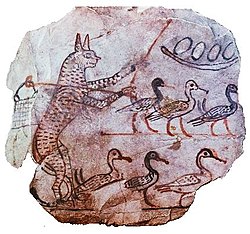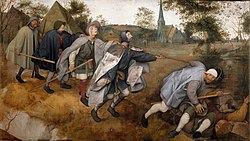Satire

Satire is a form in art or writing which ridicules either a person, government, or an institution, often through the use of humour. Satire can either be in paintings, plays, books, songs, TV or movies. It also is used to stereotype people.
Satire was used long ago. It is a Latin word, though the plays of Aristophanes are often called satirical. Satire was widely known in Elizabethan times. Swift used it in his book Gulliver's Travels to make fun of people’s stupidity. Works like The Beggar’s Opera (1728) used satire to show how silly the politicians of the time were. The German playwright Bertolt Brecht used a lot of satire, as did Peter Cook. Jon Stewart and other comedians use it frequently. A modern example of satire is the American cartoon South Park.
Satire often points out ironic or bad things that powerful people are doing. Its adjective is satirical.
Satire Media
1872 edition of Punch, a ground-breaking British magazine of popular humour, including a great deal of satire of the contemporary, social, and political scene
A satire by Angelo Agostini to Revista Illustrada mocking the lack of interest from Emperor Pedro II of Brazil in politics toward the end of his reign
Satirical ostracon showing a cat guarding geese, c. 1120 BC, Egypt
"The Reeve's Tale", the third story in Geoffrey Chaucer's The Canterbury Tales, contains the first appearance in English literature of a common humorous device across all forms of media, the comedic use of dialect.
Pieter Bruegel's 1568 satirical painting The Blind Leading the Blind








